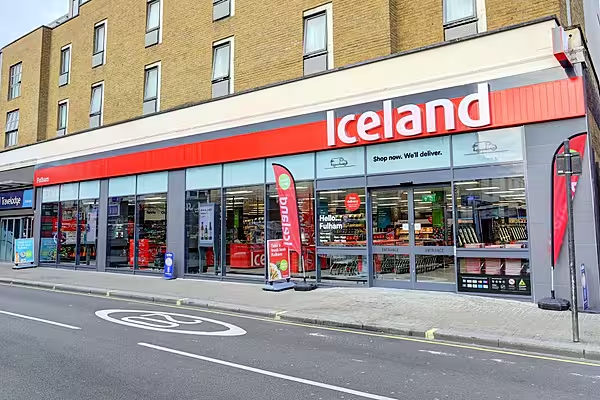UK grocer Morrisons will outpace Asda in revenue and earnings growth until the latter resolves its operational problems, ratings agency Moody's said in a recent report.
Asda's credit rating (B1 stable) is a notch higher than Morrisons (B2 stable) but operational difficulties have weakened its credit quality, Moody's added.
Morrisons has improved its operational efficiency and has significantly reduced funded debt through property sale and leaseback deals and selling its petrol forecourts business.
Although Asda holds a larger market share in the UK, recent data shows that Morrisons' share has stabilised, while Asda's has declined.
Moody's has forecast revenue growth of 4%-5% in the financial year 2025 for Morrisons, driven by double-digit growth across convenience and wholesale.
For Asda, it expects 2% non-fuel revenue growth, assuming it can control its grocery market share loss.
EBITDA growth for Morrisons is expected in the range of 5%-6% on a reported basis compared with 1.5%-2.0% like-for-like growth for Asda.
Moody's compared both businesses based on some key factors:
Business Diversity
Moody's noted that Asda is a larger and more diverse business than Morrisons with exposure to fuel retail.
The company acquired petrol station operator EG Group Limited’s (B3 stable) UK & Ireland operations, further diversifying its revenue away from food.
However, lower margins at fuel retail compared to grocery means Asda's earnings still rely heavily on the performance of its network of approximately 600 large format supermarkets, where about 15% of non-fuel sales come from the more profitable yet cyclical clothing and general merchandise segments.
In comparison, Morrisons is purely grocery-focused after selling its petrol forecourts and relies more on grocery market share for growth.
It also benefits from new wholesale supply agreements and an expanded convenience store presence.
Among the UK's four largest incumbent grocers, Morrisons stands out for owning and managing elements of its supply chain.
While this enables it to directly control about 50% of its fresh food production and 20% of its overall food offerings, it also exposes the business directly to raw material price volatility.
Initially, food manufacturing allowed Morrisons to have a capital-light exposure to the convenience channel as a wholesale provider, with McColl’s as its largest customer.
The acquisition of McColl’s has increased Morrisons' presence in the convenience sector by adding just under 1,000 stores and also broadened its reach through franchising and third-party collaborations, offering additional growth potential.
Credit Quality
Moody's expects Asda's credit quality to remain stronger than Morrisons in the next 12-18 months despite the latter likely to continue to improve, supported by debt reduction and renewed operating momentum.
The ratings agency also warned that Asda's credit quality could decline further if does not address its operational difficulties in the coming months.
Asda saw weaker operating performance than expected and foresees annual costs to rise £100 million as a result of increased National Insurance contributions.
According to Moody's, Morrisons' adjusted debt/EBITDA leverage ratio will improve to 6.8x by the end of the 2025 fiscal year ending 31 October 2025 from 7.2x in 2024.
Asda's adjusted debt/EBITDA leverage ratio will hover around 5.5x through the end of 2025, which is also the end of its fiscal year.
Revenue And Earnings
The forecast for revenue growth for Asda is more muted compared to Morrisons, which will benefit from double-digit growth in its convenience stores and wholesale business. Supermarket channel's revenue growth is expected to be slower at around 3%.
Morrisons' strategic investments, and particularly its price matching scheme against Aldi and Lidl, which it launched in early 2024, have helped halt its market share erosion.
Under CEO Baitiéh's leadership, the company has focussed on improving customer satisfaction and loyalty, which is reflected in volume growth during the first and second quarters of the 2024 calendar year.
Elsewhere, Asda's market share loss accelerated in 2024, followed by a reduction in volumes in the second and third quarters.
The grocer also faced challenges in the form of substantial operational hurdles, related to customer service, store experience, and product availability.
During the past six months, the company has addressed these issues by increasing employee pay to increase hours in stores and focusing further to enhance its price competitiveness.












